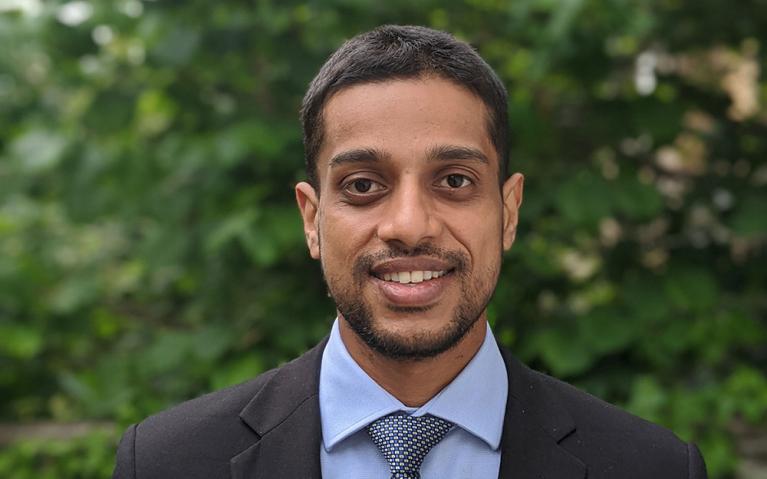
Hiroshan Gunawardane
Doctor of Philosophy in Mechanical Engineering (PhD)
A Novel Microscale Soft Actuator for Medical Applications
The Friedman Award for Scholars in Health supports learning and research opportunities for graduate students or medical residents working in the broad area of health, to bring new perspectives to their education and further their career.
The Friedman Award for Scholars in Health is named after two of the earliest faculty members in the UBC Faculty of Medicine. Dr. Sydney Friedman and his wife Dr. Constance Livingstone-Friedman believed that well-rounded and transformative education includes learning from different perspectives and cultures, and they wished to support such learning among UBC graduate students and medical residents.
Awards of up to $50,000 each will be granted for 6 to 12 months of study outside Western Canada. The award amount will be at the discretion of the adjudication committee. Each recipient of a Friedman Award will be designated a “Friedman Scholar”.
Travelling outside of Canada: When students are planning travel outside of Canada for university purposes, they have obligations under UBC’s Student Safety Abroad Policy (SC12). Students are required to have adequate travel medical insurance, to register their travel on UBC’s Safety Abroad Registry, and to use the resources provided by UBC to support safe travel planning and risk management. In locations where the Government of Canada has official travel advisories in place, students are required to request High-Risk Authorization before travelling. For more information, see: https://safetyabroad.ubc.ca or email safety.abroad@ubc.ca.
Friedman Scholars are expected to travel to other areas of the world to seek new perspectives, initiate new collaborations with experts in their fields and be exposed to different cultures.
Funds received from this award are to be used for expenses related to the opportunity. These may include: travel expenses (airfare, visas, health insurance, etc.), living expenses (rent, groceries, etc.), fees assessed for related educational endeavours. Other kinds of research or project-related expenses should include a justification in the budget template document.
The funds may not be used for expenses already incurred. None of the funds shall be used to pay down or reduce current or past educational debt, to pay a personal stipend for the learner, or to pay UBC tuition.
Any unused funds must be returned to UBC for future disbursement through the Friedman Scholar Program.
Student/resident past accomplishments and future promise
Awardees should be individuals with evidence of and future promise for innovative outlooks and scholarship, leadership ability and high likelihood of making a positive difference in the field of health.
The nature and quality of the learning opportunity
This includes the calibre of the mentor or organization with whom the applicant will work, and the quality and likely contribution of the learning experience with respect to the applicant’s career and personal development.
The potential impact of the learning/work opportunity on the field of health
This may include potential direct impact, or potential impact on the field through significant scholarly growth of the individual awardee.
A complete application must be submitted online by 4:00 pm PT on 21 March 2025. Late or incomplete applications will not be considered; it is the applicant's responsibility to ensure that their application is complete by the deadline. Please follow up with your referees before the deadline as appropriate.
A complete application consists of the following:
Submitted by applicant - SUBMIT APPLICATION HERE
Submitted by applicant’s chosen referees – SUBMIT REFERENCE HERE (this link is for referees only)
Letters of support must be signed by the author (digital e-signature or scanned handwritten signature are acceptable), and letters should be on institutional letterhead, where possible.
Presentation standards for free-form materials provided by the applicant:
The Senior Associate Dean, Students will convene an adjudication committee composed of UBC faculty members in health and health-related disciplines from across the university.
Should you have further questions, please contact graduate.awards@ubc.ca.